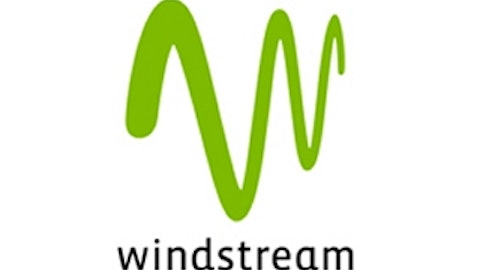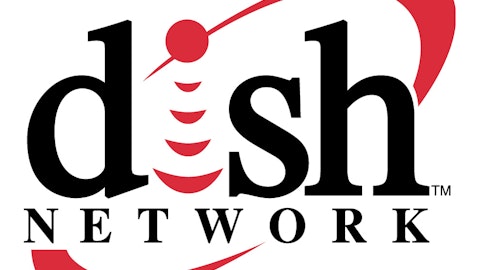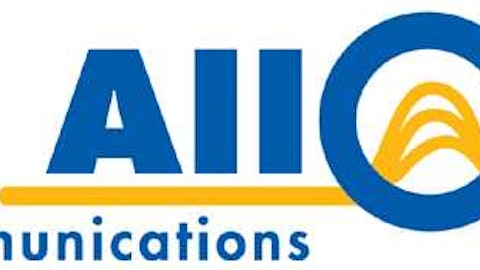In a joint statement with NextWave Wireless LLC (PINK:WAVE)’s management team, Dallas-based AT&T Inc. (NYSE:T) has announced that the Federal Communications Commission will green-light the proposed merger between the two companies. Valued at about $600 million, this cash-and-debt deal will provide AT&T with significant leverage in the rapidly-consolidating mobile data industry. For NextWave’s shareholders, it ends a difficult period that saw the company’s value decline from a high near $50 per share in mid-2008 to a low near $.20 per share throughout 2012. If nothing arises to delay or scuttle the deal, it should close by the end of the second quarter of 2013.
About AT&T and NextWave Communications
AT&T is one of the two largest wireless and landline communications providers in the United States. In addition to its core telephony businesses, the company operates an Internet and cable service provider known as UVerse. It also maintains a dense retail infrastructure in the United States and elsewhere. These stores sell phones, mobile devices, computing equipment and subscription plans. The company also provides in-person and online technical support. Finally, AT&T maintains a comprehensive e-commerce presence that permits its subscribers to change their subscription plans and purchase new devices and accessories from home. AT&T employs about 240,000 people and earned $7.3 billion on gross revenues of $127.4 billion in 2012.
NextWave Wireless has suffered a number of setbacks since its heyday in the mid-2000s. The company now functions primarily as a holding company that manages a number of distinct sections of the wireless spectrum. The value of its holdings have fluctuated in recent years: Even as the remaining unused pieces of the wireless spectrum increase in value, new additions have helped to keep the overall supply in line with demand. As such, NextWave’s revenues have stagnated or declined since the recession. The company’s attractiveness as an acquisition target is rooted exclusively in the market value of its North American spectrum holdings.
How the Deal Is Structured
Under the terms of this rather complex deal, current NextWave shareholders will receive cash compensation in the amount of $1 per share. Additionally, they will receive proportional shares of a simultaneous $25 million escrow payment. The final component of the deal involves AT&T’s assumption of NextWave’s outstanding senior debt. With an annual interest rate of 15 percent, this represents a sizable obligation.
Altogether, the cash-and-escrow components of the deal value NextWave at approximately $1.50 per share. Relative to the stock’s current closing price of $1.44 per share, this represents a premium of about 4.5 percent. Relative to the stock’s pre-announcement closing price of $.20 per share, this represents a premium of 750 percent.
Legal Issues and Potential Complications
The principal hurdle to this deal had been a period of mandatory review by the Federal Communications Commission. Now that the FCC has blessed the deal, it appears likely that it will go through as planned. Although it remains subject to a customary antitrust investigation that has not yet produced a final report, regulatory approval appears all but approved. Since NextWave is no longer a viable concern, AT&T is doing little more than purchasing valuable spectrum assets to add to its own portfolio. Although this certainly provides the company with a competitive advantage, it is not likely to violate any specific antitrust statutes.
Long-Term Prospects and Likely Outcome
With this NextWave purchase and an unrelated acquisition of additional “WCS” spectrum space, AT&T is making a concerted effort to expand its spectrum holdings and position itself for further growth. In recent years, it has become clear that the amount of available spectrum space is declining at a rapid rate. Although the FCC has taken steps to increase the number of available wavelengths, the physical limitations of the wireless industry are becoming apparent. As such, companies like AT&T and Verizon Communications Inc. (NYSE:VZ) find themselves scrambling to acquire unused parts of the spectrum.
Verizon has a stockpile of over $3 billion waiting to be used for an acquisition. Verizon announced in January that it plans to buy Atlantic tele-Network Inc’s Alltel wireless business for $780 million. Then days later, AT&T agreed to buy wireless airwaves from Verizon for $1.9 billion.
This is an ongoing process for which large concerns like AT&T and Verizon are well-equipped. In fact, these two behemoths’ smaller competitors have been squeezed out of the market by the sheer cost of competing with deep-pocketed national providers. In the coming years, it seems all but assured that the wireless industry will continue to consolidate around a few key players.
In fact, more mergers are almost certainly in the works. MetroPCS Communications Inc (NYSE:PCS) and Sprint Nextel Corporation (NYSE:S) continue to shop for smaller acquisition targets. MetroPCS has $2.5 billion in cash and Sprint has $8.2 billion. In turn, these companies might become takeover fodder for their larger competitors. In 2012, 50 wireless spectrum deals went through and in 2013, MetroPCS and Sprint are likely to be fighting for the small acquisitions that are left.
Investors who wish to capitalize on the opportunities that this merger-friendly environment presents would do well to look for undervalued medium-cap companies within the space. With respect to the present deal, AT&T’s acquisition looks smart despite its small premium. Investors who wish to benefit from continued growth in the wireless and broadband industries will find both AT&T and NextWave attractive at these levels.
The article A Small Victory In The Battle For Wireless Spectrum originally appeared on Fool.com and is written by Mike Thiessen.
Copyright © 1995 – 2013 The Motley Fool, LLC. All rights reserved. The Motley Fool has a disclosure policy.






